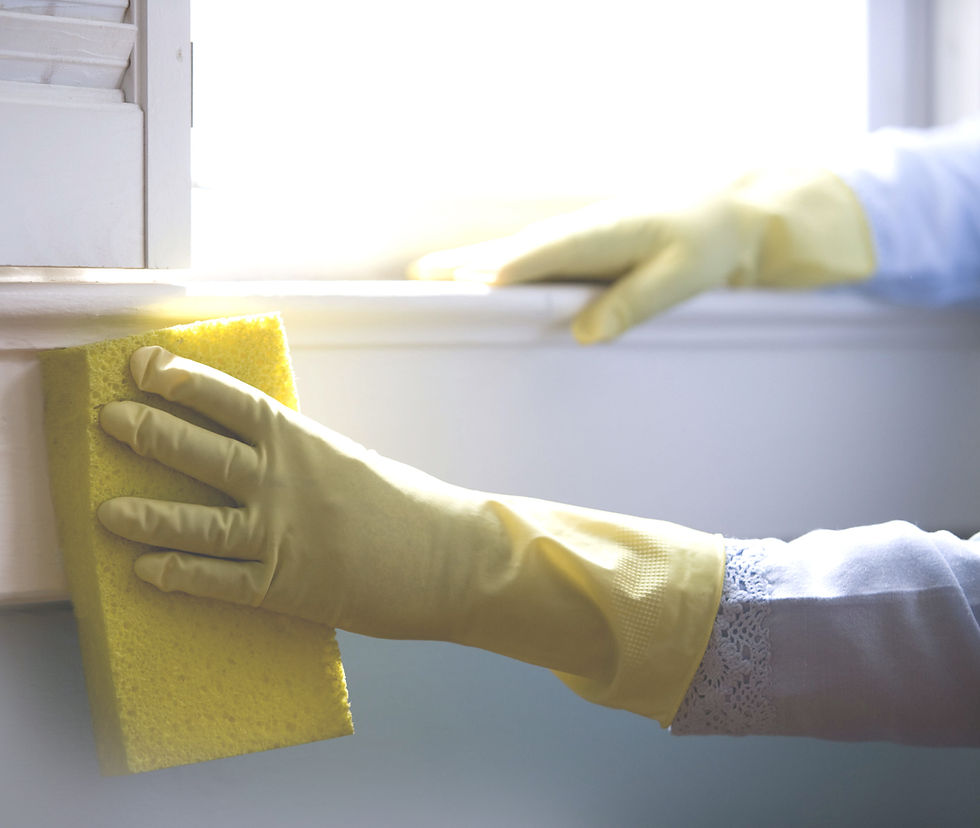Maintaining a clean and hygienic environment is essential for a healthy lifestyle. However, there's often confusion between regular cleaning and deep cleaning, leading many to wonder which approach is best suited for their needs. Let's delve into the nuances of both methods to understand their differences and benefits.
Understanding Regular Cleaning
Regular cleaning forms the foundation of a clean living space. It involves routine tasks aimed at maintaining cleanliness and tidiness. These tasks typically include dusting, vacuuming, sweeping, mopping, and surface wiping. Regular cleaning is performed on a frequent basis, often daily or weekly, depending on the area and its usage.
Exploring Deep Cleaning
Deep cleaning, on the other hand, is a more thorough and intensive cleaning process. It targets areas and surfaces that are often overlooked during regular cleaning sessions. Deep cleaning involves detailed cleaning of hard-to-reach areas, such as behind appliances, inside cabinets, baseboards, and light fixtures. This process may also include tasks like steam cleaning carpets, washing windows, and sanitizing high-touch surfaces.

Key Differences Between Deep Cleaning and Regular Cleaning
Depth of Cleaning
The primary difference between deep cleaning and regular cleaning lies in the depth of cleaning. While regular cleaning focuses on surface-level dirt and grime, deep cleaning penetrates deeper to eliminate hidden dirt, bacteria, and allergens.
Time Required
Deep cleaning is a time-consuming process compared to regular cleaning. While regular cleaning can be done relatively quickly, deep cleaning may take several hours or even days, depending on the size of the space and the extent of cleaning required.
Cost Implications
Due to its thorough nature and time-intensive tasks, deep cleaning typically costs more than regular cleaning services. However, the investment in deep cleaning is often justified by the long-term benefits it provides.

Benefits of Deep Cleaning
Improved Indoor Air Quality
Deep cleaning helps remove dust, pet dander, and other allergens that accumulate over time, leading to improved indoor air quality. This is particularly beneficial for individuals with allergies or respiratory issues.
Removal of Hidden Dirt and Bacteria
Deep cleaning reaches areas that are often neglected during regular cleaning, such as under furniture and behind appliances. By eliminating hidden dirt and bacteria, deep cleaning helps create a healthier living environment.
Prevention of Mold and Mildew Growth
Deep cleaning targets moisture-prone areas like bathrooms and kitchens, where mold and mildew can thrive. By thoroughly cleaning and sanitizing these areas, deep cleaning helps prevent mold and mildew growth, reducing the risk of respiratory problems and property damage.
Benefits of Regular Cleaning
Maintenance of Cleanliness
Regular cleaning helps maintain cleanliness on a day-to-day basis, preventing the buildup of dirt and grime. By incorporating regular cleaning into your routine, you can enjoy a consistently clean and tidy living space.
Prevention of Surface Grime Buildup
Regular cleaning prevents the accumulation of surface grime, which can be unsightly and difficult to remove over time. By staying on top of regular cleaning tasks, you can keep surfaces looking fresh and well-maintained.
Enhancement of Overall Tidiness
By tidying up regularly, you can create a sense of order and organization in your living space. Regular cleaning ensures that items are properly stored and surfaces are clutter-free, contributing to a more visually appealing environment.
Which One Should You Choose?
The choice between deep cleaning and regular cleaning depends on various factors, including your lifestyle, budget, and personal preferences. While deep cleaning is recommended periodically to maintain a high level of cleanliness and hygiene, regular cleaning plays a crucial role in day-to-day maintenance.
When deciding between the two approaches, consider factors such as the size of your home, the presence of pets or allergies, and your schedule. Tailor your cleaning routine to meet your specific needs, combining regular cleaning for ongoing maintenance with periodic deep cleaning for a thorough refresh.
Deep or Regular?
Both deep cleaning and regular cleaning are essential components of a comprehensive cleaning routine. While regular cleaning helps maintain cleanliness on a day-to-day basis, deep cleaning provides a deeper level of cleaning that targets hidden dirt and bacteria. By incorporating both approaches into your cleaning routine, you can enjoy a clean, healthy, and inviting living space.
FAQs
Is deep cleaning necessary if I regularly clean my home?
While regular cleaning helps maintain cleanliness, deep cleaning is necessary to remove hidden dirt and bacteria that accumulate over time. It's recommended to schedule deep cleaning periodically for optimal results.
How often should I schedule deep cleaning?
The frequency of deep cleaning depends on various factors, including the size of your home, the number of occupants, and your cleaning standards. Generally, deep cleaning is recommended every few months or as needed.
Can I do deep cleaning on my own, or should I hire professionals?
Deep cleaning can be done on your own if you have the time, energy, and equipment required for thorough cleaning. However, hiring professionals can ensure a more efficient and effective deep cleaning process, especially for larger spaces or heavily soiled areas.
What areas typically require deep cleaning?
Areas that are often overlooked during regular cleaning, such as behind appliances, inside cabinets, baseboards, and light fixtures, typically require deep cleaning. Additionally, high-traffic areas like carpets and upholstery may benefit from deep cleaning to remove embedded dirt and stains.
Does deep cleaning cost significantly more than regular cleaning?
Yes, deep cleaning typically costs more than regular cleaning due to its thorough nature and time-intensive tasks. However, the investment in deep cleaning is often justified by the long-term benefits it provides for your home's cleanliness and hygiene.


Comments